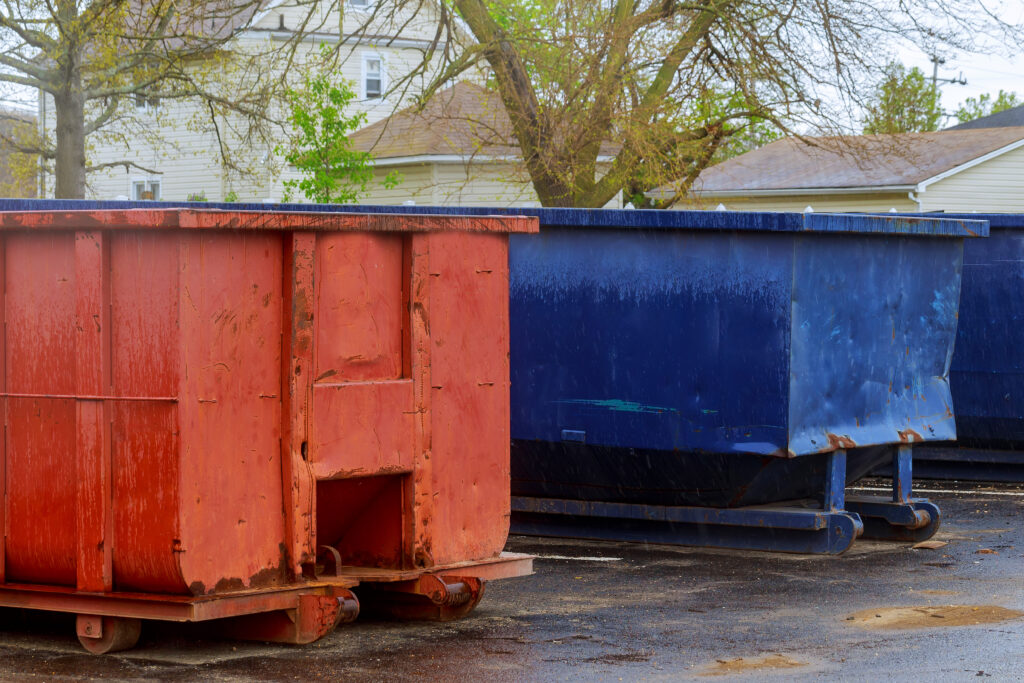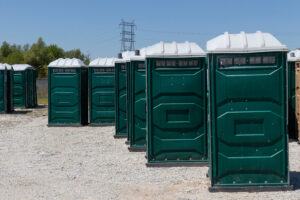Managing construction waste across multiple states presents unique challenges, especially when navigating different regulations for dumpster rentals.
For contractors working throughout Pennsylvania, Delaware, and Maryland, understanding these varying requirements is crucial for project success and compliance.
Understanding Cross-State Operations
When your construction project spans multiple states, you’re dealing with different jurisdictions, each with its own set of rules and regulations.
What’s perfectly acceptable in Pennsylvania might get you fined in Maryland.

Dumpster Rental Regulations in Multi-State Projects
Think of it like crossing time zones – you need to adjust your watch, and in this case, your waste management practices.
The Paperwork Puzzle
Each state requires specific permits and documentation for dumpster placement and waste disposal. In Pennsylvania, you’ll need a general contractor’s license and waste hauling permits. Delaware demands additional environmental impact documentation, while Maryland requires detailed waste segregation plans. Keeping organized records for each state helps prevent costly delays and penalties.
Pennsylvania’s Unique Requirements
Size and Placement Regulations
Pennsylvania takes a strict approach to dumpster placement. In Philadelphia, for example, you need a street permit for any dumpster placed on public roads, with specific requirements for reflective markings and distance from intersections. Pittsburgh has different rules, requiring dumpsters to be placed at least 15 feet from any building entrance.
Waste Segregation Rules
PA’s Department of Environmental Protection mandates specific waste sorting protocols. Construction debris must be separated from hazardous materials, and certain items like asbestos require specialized containers and handling procedures. The state’s emphasis on recycling means you’ll need separate containers for metal, wood, and concrete.
Delaware’s Environmental Focus
Coastal Considerations
Delaware’s proximity to the coast influences its dumpster regulations. In coastal areas, containers must be hurricane-proof and equipped with secure lids to prevent debris from becoming airborne during storms. There are also strict rules about placement during turtle nesting season along coastal construction sites.
Weight Restrictions
The First State enforces strict weight limits for loaded dumpsters to protect road infrastructure. Maximum weight varies by location and season, with additional restrictions during spring thaw periods. Smart contractors in Delaware often opt for multiple smaller containers rather than single large ones to stay within limits.
Maryland’s Urban vs. Rural Divide
Baltimore’s Special Requirements
Construction projects in Baltimore face unique challenges with dumpster placement. The city’s historic districts have specific aesthetic requirements – some areas mandate screening or enclosures around dumpsters. Heights are restricted near the Inner Harbor to preserve viewsheds.
County-Specific Variations
Maryland’s counties have significant autonomy in setting waste management rules. Montgomery County requires electronic tracking devices on all construction dumpsters, while Howard County mandates specific pickup times to minimize traffic impact. Rural counties often have more lenient placement rules but stricter requirements for preventing agricultural land contamination.
Cross-State Compliance Strategies
Digital Documentation Management
Success in multi-state operations demands robust documentation systems. Modern contractors use specialized apps to track permits, schedules, and waste manifests across jurisdictions. These tools can alert you when permits need renewal or when you’re approaching weight limits.
Staff Training Essentials
Your team needs to understand the nuances of each state’s requirements. Regular training sessions should cover state-specific regulations, emergency procedures, and proper documentation protocols. Consider designating state-specific compliance officers for larger projects.
Cost Considerations and Planning
Working across state lines often means dealing with different fee structures and rental terms. Pennsylvania typically charges by weight, Delaware by volume, and Maryland often uses a hybrid system. Smart planning involves understanding these differences and structuring contracts accordingly.
Seasonal Variations
Each state has seasonal restrictions that affect dumpster rental costs and availability. Pennsylvania’s winter weather brings additional coverage requirements, Delaware’s beach season impacts access routes, and Maryland’s hurricane season demands special securing measures.
Future Trends and Adaptations
The waste management landscape continues to evolve, with increasing emphasis on sustainability and digital tracking. All three states are moving toward automated reporting systems and stricter recycling requirements. Forward-thinking contractors are already adapting by investing in sorting technology and real-time tracking systems.
Emerging Technologies
New innovations are making cross-state compliance easier. GPS-enabled dumpsters help with placement documentation, while weight sensors provide real-time load monitoring. Some companies are even experimenting with AI-powered waste sorting systems to ensure compliance with each state’s recycling requirements.
Managing dumpster rentals across PA, DE, and MD requires careful attention to detail and strong organizational skills. Success comes from understanding each state’s unique requirements while maintaining flexible systems that can adapt to local variations. By staying informed about regulations and embracing modern management tools, contractors can turn potential compliance headaches into streamlined operations.




